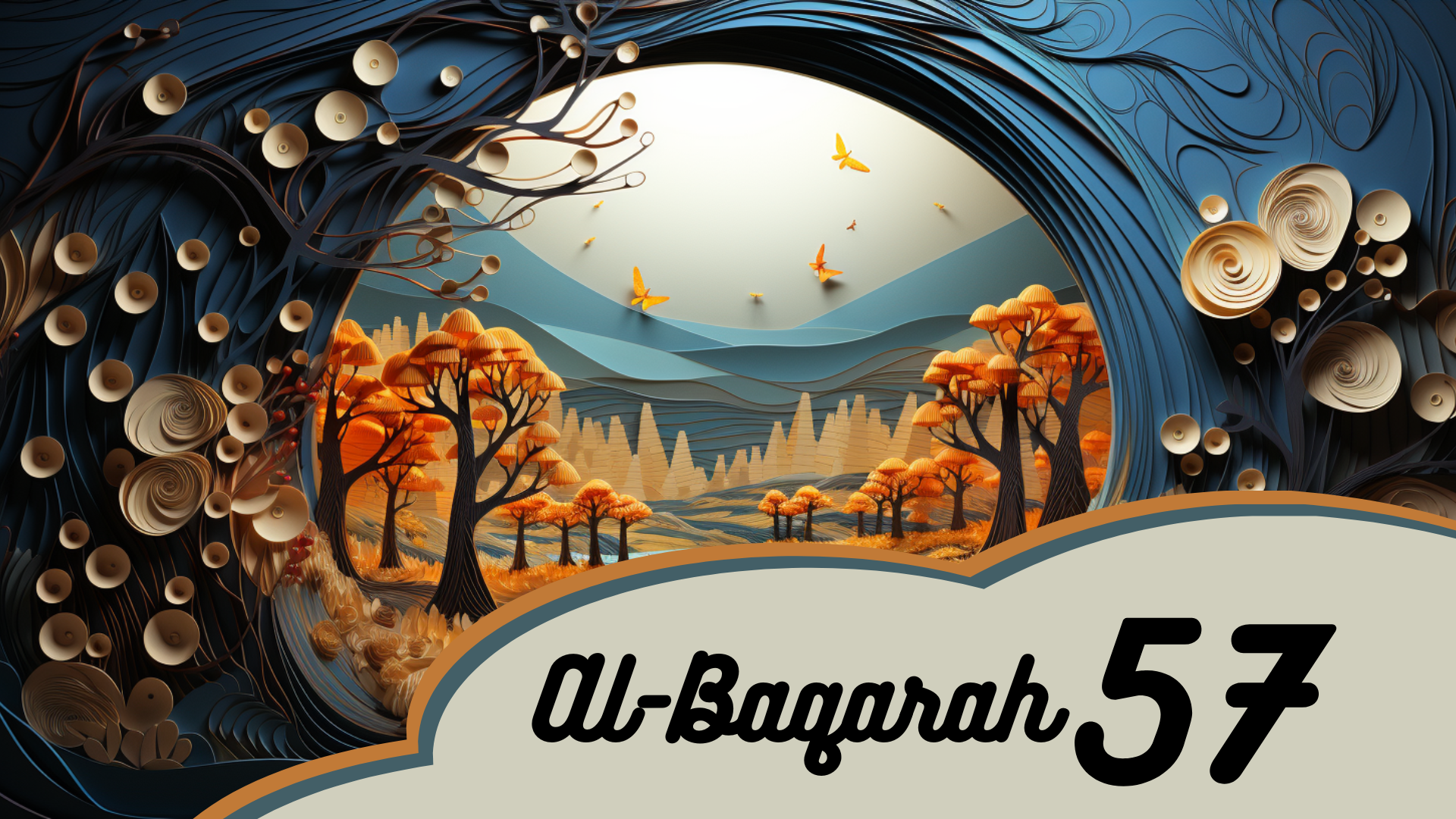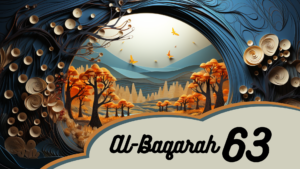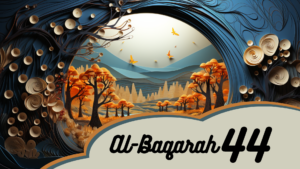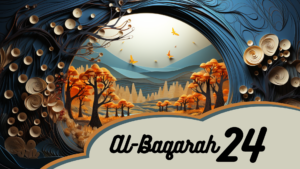In this article, we will explore the profound meaning behind Verse 57 of Surah Al-Baqarah in the Quran. Delving into the depths of this verse, we will uncover its significance and how it applies to the daily lives of Muslims. With a focus on providing a detailed explanation, we aim to provide a deeper understanding of this verse’s teachings, unveiling its relevance and impact on the spiritual journey of believers.
Verse 57 of Surah Al-Baqarah
Overview of Surah Al-Baqarah
Surah Al-Baqarah is the second chapter of the Holy Quran and is the longest chapter within the Quran, consisting of 286 verses. It is a central chapter that addresses various aspects of life, including religious, social, and legal matters. This chapter covers a wide range of themes, such as the history of previous nations, the importance of faith and good deeds, the guidance of Allah, and the consequences of disobedience. It serves as a comprehensive guide for Muslims, providing them with guidance on how to live a righteous and fulfilling life.
Understanding the Context
To truly comprehend the meaning of a verse, it is essential to understand the context in which it was revealed. Surah Al-Baqarah was revealed in Madinah during a time when the Muslim community faced numerous challenges and trials. The believers were transitioning from a life of oppression and persecution in Makkah to building a new society based on the principles of Islam in Madinah. Consequently, this chapter offers guidance to Muslim society and addresses specific issues they were facing at that time.
Translating the Verse
Before delving into the meaning of verse 57 of Surah Al-Baqarah, let us first consider its translation from Arabic to English:
“We shaded you with clouds and sent down upon you manna and quails, saying, ‘Eat from the good things with which We have provided you.’ And they wronged Us not – but they were [only] wronging themselves.”
Exploring the Meaning
This verse can be interpreted as a reminder from Allah to the Children of Israel, who were known for their perpetual disobedience and ingratitude. Allah addresses them, emphasizing the numerous blessings He granted them during their journey through the desert. By shading them with clouds, Allah protected them from the scorching sun and extreme heat. Moreover, He sent down manna (heavenly food) and quails as a provision to sustain them during their difficult journey.
Connection to the Theme of Guidance and Gratitude
The verse is closely related to the overarching theme of guidance and gratitude, which runs throughout the Quran. Allah, in His infinite mercy, guided the Children of Israel and provided for them during their time of need. However, despite these blessings, they failed to show gratitude and appreciation. Instead, they gave in to their desires and indulged in wrongdoing, ultimately hurting themselves and deviating from the path of righteousness.
Interpreting the Verse
When we delve deeper into the verse, we can extract several important lessons. Firstly, Allah’s protection and provision for His creation are evident in the mentioned blessings. From the clouds that offered shelter to the manna and quail that provided nourishment, Allah’s mercy was abundant. Secondly, the mention of the Children of Israel’s wrongdoing reminds us that ingratitude and disobedience lead to self-destruction. By disregarding divine guidance and failing to acknowledge Allah’s favours, they brought harm upon themselves.
Understanding the Significance for Muslims
Although this verse specifically addresses the Children of Israel, it holds immense significance for Muslims as well. It serves as a timeless reminder of the consequences of ingratitude and disobedience. Muslims are encouraged to reflect upon their own lives and evaluate the ways in which they may be falling short in expressing gratitude to Allah for His numerous blessings. Additionally, it highlights the importance of following divine guidance and avoiding the pitfalls of indulging in worldly desires.
Application in Daily Lives
The lessons derived from this verse can be applied to various aspects of a Muslim’s daily life. Firstly, it reinforces the importance of expressing gratitude to Allah for His blessings. Muslims are encouraged to recognize the countless favours bestowed upon them, both material and spiritual, and to express their appreciation through acts of worship, charity, and kindness towards others. By cherishing and acknowledging these blessings, Muslims can cultivate a sense of contentment and avoid the pitfalls of ingratitude.
Secondly, the verse teaches Muslims to be cautious of the temptations of this world and to prioritize their submission to Allah over their worldly desires. It serves as a reminder to remain steadfast in following the teachings of Islam, abstain from sinful behaviour, and seek refuge in Allah from the trials and tribulations of this world.
Lessons Learned from the Verse
This verse provides Muslims with several valuable lessons. Firstly, it teaches gratitude and appreciation for Allah’s blessings. Muslims are reminded to never take their provisions for granted and to acknowledge the countless ways in which Allah provides for them. By adopting a mindset of gratitude, Muslims can cultivate contentment and increase their blessings.
Secondly, the verse emphasizes the importance of self-reflection and accountability. Muslims are reminded that their actions have consequences, both in this world and the hereafter. By recognizing their own shortcomings and striving for self-improvement, Muslims can avoid the traps of wrongdoing and lead a righteous and fulfilling life.
Lastly, the verse calls upon Muslims to actively seek guidance from Allah and to follow His teachings wholeheartedly. By anchoring themselves to the principles of Islam and staying firm in their faith, Muslims can navigate the challenges of life and stay on the path of righteousness.
Conclusion
Verse 57 of Surah Al-Baqarah serves as a profound reminder for Muslims to express gratitude, seek divine guidance, and avoid the pitfalls of ingratitude and disobedience. By reflecting on this verse and incorporating its lessons into their daily lives, Muslims can foster a deeper connection with Allah, experience greater contentment, and strive towards righteousness. May we all heed the teachings of the Quran and live our lives in accordance with Allah’s guidance.




